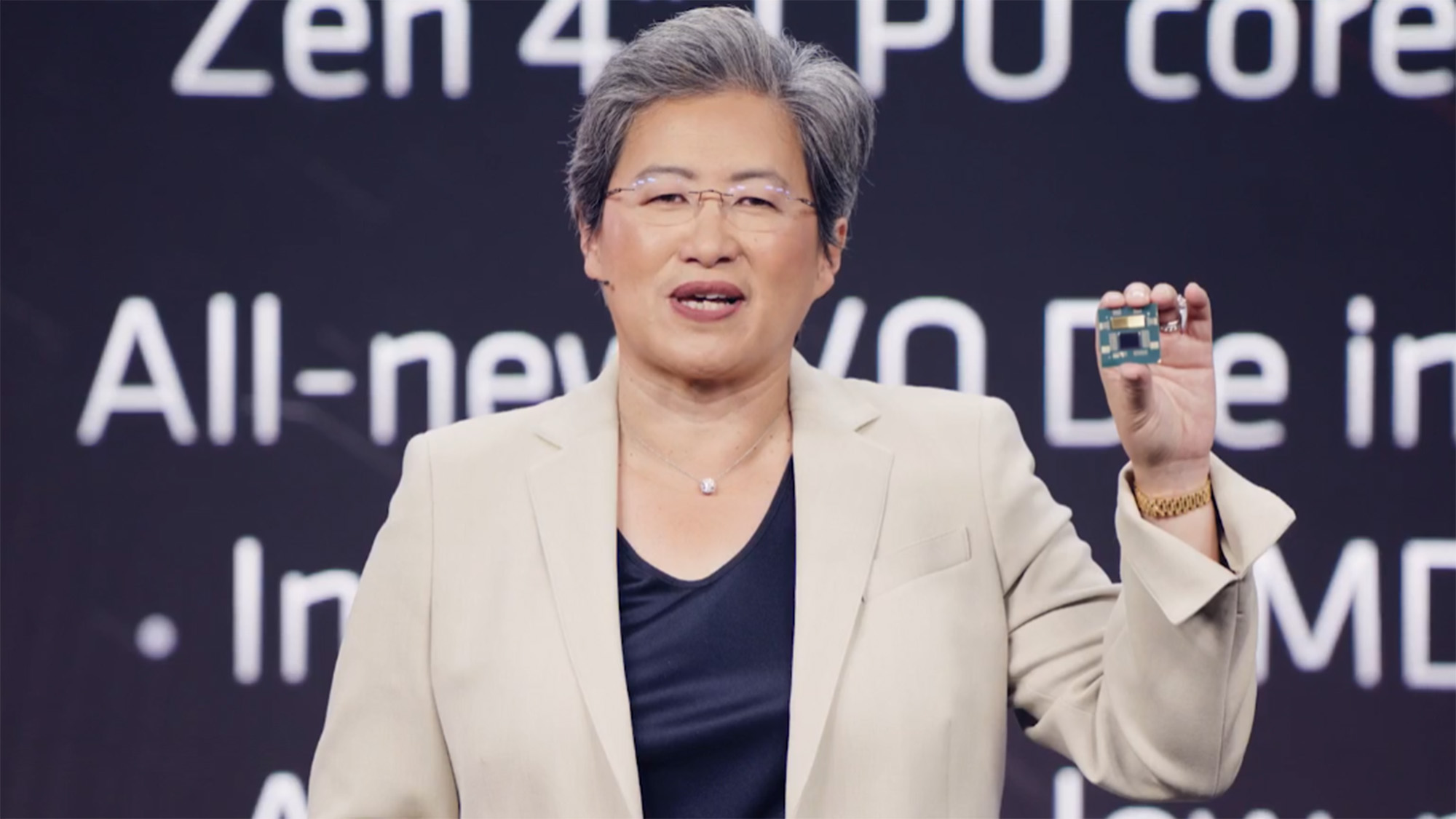AMD Zen 4 flagship CPU looks a major threat to Intel with 5.5GHz boost out of the box
At least in Ghostwire Tokyo demo, with a prototype CPU

AMD’s Zen 4 flagship CPU, the 16-core model that’ll likely turn out to be the Ryzen 9 7950X, will be capable of hitting 5.5GHz boost speeds by default, with no overclocking needed.
This revelation was made courtesy of a PC World livestream with AMD’s Director of Technical Marketing Robert Hallock, who clarified some details about the processor powering the gaming PC which ran the Ghostwire Tokyo demo at AMD’s Computex 2022 keynote.
While we already knew that the 16-core CPU reached 5.5GHz in the demo, the really interesting bit is the info that it did this running at default settings – in other words, that’s the boost clock you can expect from the processor out of the box, with no tweaking whatsoever, and no super-fancy cooling solution.
Hallock further observed that the test PC platform used a reference AMD AM5 motherboard with a consumer-level AIO liquid cooler. Interestingly, as Ian Cutress points out on Twitter, the Zen 4 chip is a prototype model (from April), and most threads were running at around 5.5GHz, depending on the exact scene being rendered (and the game played).
Furthermore, 5.2GHz to 5.5GHz was ‘common’ across all threads for Ghostwire Tokyo, going by what Hallock told Cutress.
Analysis: A big boost for AMD, but don’t forget Raptor Lake is in the wings
This is an exciting glimpse of the potential performance of the Zen 4 flagship, especially bearing in mind that the CPU shown off in the demo is still a work in progress (a prototype from last month, as mentioned).
Recall that Intel’s current top dog for Alder Lake, the seriously pricey Core i9-12900KS, is capable of 5.5GHz, and AMD is matching this here. However, the 12900KS just does 5.5GHz across a pair of cores, and as we see here, the 16-core Zen 4 effort can hit this for all-core boost.
Get daily insight, inspiration and deals in your inbox
Sign up for breaking news, reviews, opinion, top tech deals, and more.
Of course, we have to be careful around this, and when questioned further, Cutress elaborated that 5.5GHz all-core might be achievable in light workloads that don’t tax the chip’s cores much (and don’t require a lot of power per core, therefore it’s perfectly possible to floor the boost accelerator, as it were).
But exact boost speeds will be highly dependent on how taxing any given game is, as well as how heavy and demanding the action gets within that game. So, there lots of caveats here, but the broad takeaway is that any more taxing game isn’t going to be looking at nearly those levels of boost (and as AMD points out, the typical range is from 5.2GHz to 5.5GHz all-core for the easy-going Ghostwire Tokyo).
Also, before we get carried away with the potential of Zen 4 to put a big dent in Intel’s recent progress in the CPU arena, we should also remember that next-gen processors from Team Blue, Raptor Lake, are also due later this year. Those 13th-gen products might even turn up before Zen 4, and could push boost speeds much higher for Intel, with the rumor mill floating figures like 5.8GHz, along with the potential of other gains for gamers in terms of cache developments.
So, this could yet turn out to be a very different battle than the one which this latest revelation from AMD seems to hint at…
Via Tom’s Hardware
Darren is a freelancer writing news and features for TechRadar (and occasionally T3) across a broad range of computing topics including CPUs, GPUs, various other hardware, VPNs, antivirus and more. He has written about tech for the best part of three decades, and writes books in his spare time (his debut novel - 'I Know What You Did Last Supper' - was published by Hachette UK in 2013).